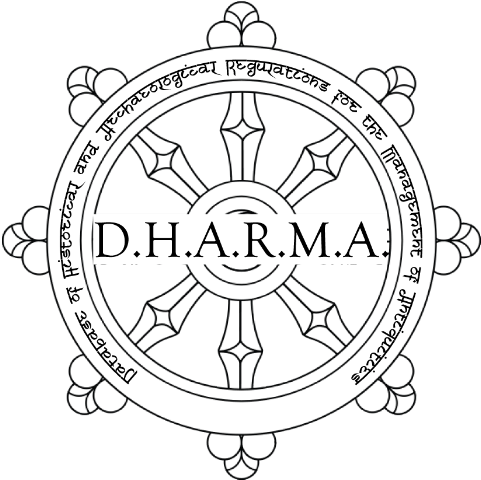There is beautiful movie “Gods must be crazy”
picturized around the tribal community in Africa. The movie shows how an empty
coca-cola bottle dropped from a chopper gets into the hands of the tribals.
With the coming of an object from so called modern world, the peace and order
in the tribe is destroyed. Although they find the unbreakable glass useful, it
becomes the reason of their fight and animosity.
This has become exactly the case of development
today. Nobody is saying soft drinks are anti-development. It is equally wrong
to say that having a soft drink itself shows the level of development. Soft
drinks are a measure of standard for the community in which the pilot lives;
the tribals have a different standard. Not one template of development can suit
all communities, cultures, Nations and people. Universalization of anything can
have miserable ends.
Today, when we talk of development, we are only
talking about economic development; in other words wealth creation. A satire
goes like this -
Development today means:-
- Vertical development - of concrete buildings,
industries etc.
- Horizontal development - of human fat through the
sedentary lifestyle.
What about intellectual, emotional, spiritual
development?
Further, is economic development justified by
pollution and damage to atmosphere.
It is high time to think, what development
actually means to the humanity at large.
Can we give a Bharatiya way to address this
issue? Do we have an answer in our age old culture? The answer is yes. Let us
look into it.
Popular view of development
- Fulfillment of basic needs - food, clothing, shelter.
- Wealth creation.
- Industrial development
- Economic progress.
- Human well-being
Fault lines in the popular view
- Exploitation of environment:- industrial development has led to grave challenges like environment pollution causing threat to flora and fauna. It is also causing human illness. That which was started for human well being is not ensuring that itself.
- Centralized governance:- in all modern means development is centralised. In capitalism, economy is in the hands of a few. In Socialism, it is in the hands of government. Governance, in both the cases is centralised.
- Technology Transfer:- With increasing stress on Intellectual Property Rights (IPRs), knowledge is also restricted to a few. Transfer of technological knowledge is restricted.
- Imbalance in growth:- a few city centres are given focus and remote villages are ignored.
Let us now look into the Bharatiya view of development.
Bharatiya perspective
Environment centric:- all our technologies
are environment friendly. For example organic - cow based farming. Cottage
industries ensure distribution of output, rather than large scale production
causing damage to environment in industrial areas.
Decentralisation: In Bharat, businesses
are primarily run by families. Generations after generations the technologies
of metallurgy, architecture, Vedic / Spiritual Knowledge, have been transferred
through the family system.
Self governance:- Grama Swaraj & the
panchayat system of self governance is an ideal system wherein local issues are
addressed locally. Systems centred around a single place, or a group of people
cannot confront the challenges in far off places. For example people sitting in
a remote village in Nagaland will get better solutions locally than from lofty
suggestions of experts sitting in Delhi.

Temple economy:- Temples in Bharat have
not only been places of religious worship, but also centres of economy. Many people
have and are making a livelihood out of the temple viz. the architects,
priests, flower vendors, caterers, service sector, artists, etc.
 |
| Stone Chariot at Hampi (It is said diamonds and pearls were traded in & around this place). |
Gau Mata & Organic Farming:- Cow is the center of Bharatiya culture and economy. Cow is worshiped as mother; she is also sine qua non for agriculture in Bharat. Pesticides used in farms have destroyed the fields and the lives of people living in and around the agriculture areas. Whereas, some researches have proved that even pesticide free organic farming can yield rich dividends. Cow manure is known to enrich the quality of soil and thereby the crop. The presence of cow in farm land has multiple benefits.
Dharma : Holistic Vision A holistic vision is what is needed for anything subject to see it's peak. As seen earlier, there are certain weaknesses in the present discourse of development. In fact, destruction of environment and spoling human health cannot be termed as development. In Bharatiya vision we have a complimentary approach :-
- परम वैभवं - Reaching the pinnacle.
- सर्वे भवन्तु सुखिनः - May all be happy.

Hence, economic accomplishments may not be at the cost of something else. Reaching the glory or development in another sense is all inclusive. “Inclusive Development” is the Bharatiya model of development. Inclusiveness is not just of all the segments of human society; it includes plant life, animal life and the environment at large. Only a person with such an inclusive vision can create technology that is eco-friendly, at the same time immensely beneficial to mankind. This is Dharma - attaining the crest/peak by fulfilling one's duty, at the same time including inclusive development of all along with individual self development of a human being.
This vision can be inculcated only through sanskaras (values). These values must be inculcated from childhood so that each individual blossoms into a contributor rather than an exploiter.
#DevelopmentDiscourse